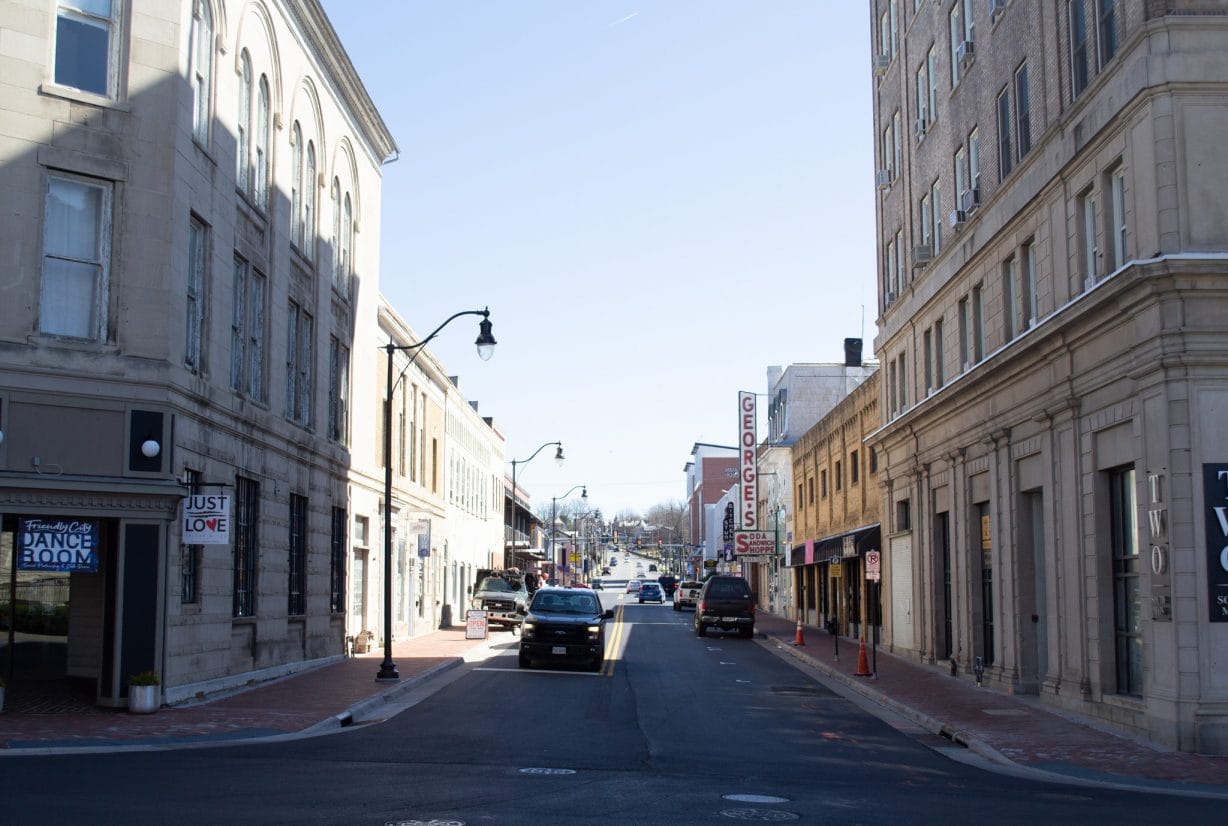
By Rachel Petterson, contributor
The city council unanimously approved applications for several upcoming events in Harrisonburg, and some involve road closures, so even if you don’t plan to attend, they might affect you as you drive around town.
Eastern Mennonite University’s Royals Go Downtown will be on Thursday, Sept. 22 from 5-8 p.m. “Royals Go Downtown will introduce EMU students to everything downtown has to offer and will culminate in a social event at Turner Pavilion,” said Matt Little, recreation and special events manager at the Harrisonburg Parks and Recreation Department.
“I’m excited about this because this is going to be their block party that we usually have for JMU, and we’ve never done anything for EMU,” Mayor Deanna Reed said. “So this is special.”
The Harrisonburg International Festival will be Saturday, Sept. 24, as the in-person event returns after a two-year hiatus.
“The international festival celebrates the diversity of Harrisonburg and the Shenandoah Valley and returns downtown this year,” Little said. The north, south and west sides of Court Square will be closed for this event, as well as Liberty Street between Gay and Rock streets from 10 a.m.-8 p.m.
Shenandoah Valley Pride Celebration will be on Saturday, Oct. 8. The north, south and west sides of Court Square will be closed for this event.
EMU’s Homecoming & Family Weekend Celebration will also be that day. Park Road from Mount Clinton Pike to Parkwood Drive will be closed from 1-8 p.m.
Council member Laura Dent reminded the public that the “Block Party in the ‘Burg” event to welcome JMU students back to Harrisonburg is this Saturday from 2:30-4:30 p.m. The information booth will be on Court Square.
In addition, Reed announced that she will have a roundtable discussion with U.S. Sen. Tim Kaine about drug addiction and substance abuse at 11:30 a.m. Wednesday. That discussion is open to the public and will be held at the Lucy M. Simms Center at 620 Simms Ave.
City Council Discusses How to Spend ARPA Funds
Before Tuesday night’s council meeting, the council members used a work session to continue discussing how best to spend millions of dollars in federal funds from the American Rescue Plan Act (ARPA) that Congress passed last year to help make up for lost tax revenue as a result of the pandemic.
The city has spent much of 2022 gathering input about how to spend the $23.8 million in ARPA funds that it’s slated to receive. So far, the city has spent little, although it has pegged some of those funds for both the creation of a permanent shelter for those experiencing homelessness and a new fire station near EMU.
Through the public engagement campaign, led by the Institute for Constructive Advocacy and Dialogue (ICAD) at JMU, eight areas of need emerged from the public comments.
Tuesday’s work session was dedicated to discussing how the city council would move forward with what community members had expressed as Harrisonburg’s needs. But the council spent Tuesdays focusing on only half of those eight areas: strengthening support for K-12 students; improving community mental and physical health; supporting workers and working families; and affordable housing.
The council plans to discuss the other four main areas of need at a second work session in September. The date of the second work session is yet to be announced.
Lori Britt and Rob Alexander, ICAD’s co-directors, outlined for the council on Tuesday how residents of Harrisonburg reported being affected by COVID-19 and what issues they would like to see prioritized when allotting ARPA funds.
The council discussed potential criteria for deciding how the funds would be used. Britt summarized the council members’ discussions by creating a list of criteria that the council would then use as to guide decisions.
Britt said the council wanted to “invest in things that can be funded within the ARPA guidelines and time guidelines that must be sustainable. So they have to be able to be carried on over time–that will make the greatest impact.”
Other criteria included prioritizing areas that were most affected by the covid-19 pandemic, as well as long-term projects that could be accelerated. Another priority would be “addressing past harms.”
Britt will use these criteria to create a checklist that will help guide the council as the members decide how to allocate ARPA funds.
The council members have said throughout the ARPA funding decision process that helping support childcare infrastructure and affordable housing should be top goals.
When it came to promoting physical and mental health, one idea that Council member Christopher Jones said he’d like to see greater involvement by mental health professionals in situations when police are called.
“A big thing is that the response to calls – taking that pressure off of our guys and gals that are responding to violent situations versus non-violent situations, and having that’s a mental health professional, most especially to respond to the non-violent and be on scene at the violent situations to helpfully help with the de-escalation process once it gets to that stage where they can,” Jones said.
Vice Mayor Sal-Romero suggested examining ways to combat substance abuse and help improve mental health.
“These are things that we need to review and find more unique ways that they can actually have a greater impact,” he said. “It’s really hard to select one or two because they all sort of are interconnected.”
Journalism is changing, and that’s why The Citizen is here. We’re independent. We’re local. We pay our contributors, and the money you give goes directly to the reporting. No overhead. No printing costs. Just facts, stories and context. We’re also a proud member of the Virginia Press Association. Thanks for your support.
